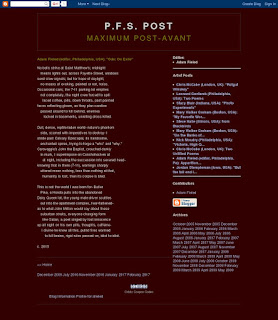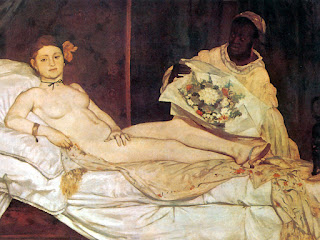I.
I’d locked myself in the bedsit flat, still North Halls.
It was now or never, to pass the self-imposed
comprehensive exams which might conclude
my literary apprenticeship. What emerged was, for the first
time, an authentically real, authentically original
voice. The Beats in there, Symbolists, Montreal,
but, in the end, it was good, & it was really me.
That I had only three years of college credits to my name
was not a crippling disappointment. I could finish
the BA somewhere else. Happy Valley’s ‘98
spring: gorgeous days in a golden string. Beckoned
by recurring dreams of sublet dynasty, I re-occupied
South Atherton Street in May.
II.
Sublet dynasty: West Nittany emerged after South Atherton.
I surveyed the papers, which for me were
drenched in the ecstasy of tears, terror, & tremors
transcended. Plays were staged. No longer inchoate,
I felt charmed. I charted Central Pennsylvania as a mighty
mind— a million shades of green. For a few
months, this college town was representatively,
legitimately my possession. I consumed College Ave.
as though it were nitrous, my diploma made of universe.,
the heaven of poetry’s gravel-paths. Shifting winds
would have to take me elsewhere. Yet much of me,
I mused, must remain in the place the breakthrough
occurred, could never change. Nature’s way.
The final autumn here the first real May.
Sunday, February 26, 2017
Wednesday, February 22, 2017
Cheltenham at Poetry Library at Southbank Centre, London
Proud to say that Cheltenham is now on the shelves at the Poetry Library at the Southbank Centre, London, UK. Many thanks to the Poetry Library staff!
Friday, February 10, 2017
from Something Solid: Aughts Philly: Gratis (for Mike Land)
Spring '05: I swung a drunken loop from
the warehouse space back into the Highwire
Gallery itself— throngs of hipsters milling
around, whiskey, wine disappearing from
the little island space situated near
windows picking up western sun-
light, as night descended on Cherry
Street, with an ambiance of anticipation.
When anything can happen in human
life, nothing usually does— what coalesced
here, art mania, was manna to us. Avalon established
eye-contact; off we pranced to the stairwell—
Mike Land grinned lasciviously, as usual,
& polished off a beer he'd received gratis.
Tuesday, February 7, 2017
Cheltenham Elegies on PennSound
The Cheltenham Elegies mp3, with the Cheltenham Elegies from the Blazevox print book Cheltenham ('12), is now up on my PennSound Author Page. Peace.
Sunday, February 5, 2017
New Sonnets in The Argotist Online
Some of the new sonnets are also up on my poetry page on The Argotist Online. Many thanks to Jeff Side.
Saturday, February 4, 2017
Olympia: A Dream
I was fighting in a French
Revolution of some kind,
hiding out in a sleeping
bag in a mess hall, gun
tucked under pillow. I knew
in an intuitive flash that
we'd be attacked that night, & we
were, but I followed a horse
out the door & was not
killed. Then I was back in
a room w wooden floors &
I saw you preen through
the window, but you weren't
looking in at me, you were
staring off, into the distance,
pristine as a Vermeer maiden,
so I went looking for Manet's
Olympia, whoring behind the mess hall.
Wednesday, February 1, 2017
Melopoeia (2009-2019)
Poetry that aims at the heart seeks to do so (usually) through an affective
catharsis; poetry that aims at the mind seeks to do so through narrative-thematic skillfulness. If we are merely emotionally moved, or merely
intellectually stimulated, it is likely that what we are reading is decidedly minor
poetry. Minor poetry maintains a narrow focus on a goal that, however
elaborately formulated, stays either in the heart or in the mind. Given the
battles that have been waged on this blog and elsewhere, it is useful to note
that, between the two camps at war in American poetry (mainstream and
post-avant), there is an agreement on each side to reduce the other side to a
caricature of one of these two forms. Centrists perpetually accuse
post-avantists of being all head; post-avant poets perpetually accuse Centrists of being bleeding heart sentimentalists. However, these battles
are often waged at the level of content. Where form is concerned, people
tend to clam up, often because they lack knowledge of the formal mechanics of
poetry. I want to posit a new possibility that has not, to my knowledge,
heretofore been posited. What if someone were to put together post-avant, as a branch of avant-garde poetry (as it
exists now), and formalism? What if someone were to kick open the door and declare
the commensurability of form and intellect, of letting heart in the back door
via a level of formal elegance, employing the architectural techniques of the avant-garde?
I have felt the need to justify to myself why, after all this time and several books, I keep coming back to form, feeding on it so to speak, now
that I know what I know. If the arbitrary nature of signs or signifiers means that we would
be foolhardy to trust in their transparency, does that negate lapidary
or ornamental usages of language? I don't think so. It is not as if Saussure
was the first thinker to point out the deficiencies of linguistic signs. John
Locke said roughly the same thing 120 years before Saussure, and the major
Romantics were all fluent in Locke. Yet the inquiries of someone like Coleridge
never threw in doubt for him that the organic unity of harmonious
metrical language was worth creating. Maybe, to bring it straight back to 2009,
poets of my generation are deciding that experimental poets over the past fifty
years have thrown out too much. Or, maybe there is no reason, I can just
get tautological and say I like formal poetry because I like it and
leave it at that. Tautological logic (a contradiction in terms) can be
surprisingly useful, even therapeutic. Why? Because the universe is
unfathomable, and poetry is part of the universe, and often few of us know why
we write what we write. It is no accident that Jack Spicer thought aliens
were dictating to him. At the center of each of us is a solid core of
emptiness, which we act out of.
I mentioned Wordsworth's phrase harmonious metrical language.
"Harmony" is associated with music, as is, of course, metrical
language. Coleridge iterates, in his Biographia, that a man (or woman) without
music in his/her soul can never be a poet. I think my addiction to metrical
language or melopoeia (and it is, to an extent, an addiction, albeit a positive one) is in
large measure the product of an imagination weaned partly on music and the metrical
language of song lyrics. To follow: the nineteenth century saw the tremendous popular success of Byron and Tennyson.
There is no twentieth century analogue to Byron and Tennyson, because, ostensibly, the lack
of metrical harmony in serious poetic language rendered it too difficult
for mass consumption. It is no accident that the single most famous Modernist
poem would probably be Eliot's Prufrock, a metrical composition.
People want music that is not merely Poundian/High Mod melopoeia; they want it to
be surface-level and discernible and, sometimes, I agree with them. Using melopoeia, in its most disciplined forms, is not a mode of conservatism either; it is simply a way of constructing poetry which manifests and works on a maximum number of levels to achieve the maximum inherent memorability and potency. The more tools we may use to create poetry, the more liberal, and liberated, we are.
Subscribe to:
Posts (Atom)






